Angels & Demons Read online
Page 34
There was a moment of silence and then the lead guard gave the order. The three men set down their flashlights on the floor, and their shadows leapt overhead. Lit now from beneath, the men advanced toward the tomb. Bracing their hands against the marble covering near the head of the tomb, they planted their feet and prepared to push. On signal, they all thrust, straining against the enormous slab. When the lid did not move at all, Vittoria found herself almost hoping it was too heavy. She was suddenly fearful of what they would find inside.
The men pushed harder, and still the stone did not move.
“Ancora,” the camerlegno said, rolling up the sleeves of his cassock and preparing to push along with them. “Ora!” Everyone heaved.
Vittoria was about to offer her own help, but just then, the lid began to slide. The men dug in again, and with an almost primal growl of stone on stone, the lid rotated off the top of the tomb and came to rest at an angle—the Pope’s carved head now pushed back into the niche and his feet extended out into the hallway.
Everyone stepped back.
Tentatively, a guard bent and retrieved his flashlight. Then he aimed it into the tomb. The beam seemed to tremble a moment, and then the guard held it steady. The other guards gathered one by one. Even in the darkness Vittoria sensed them recoil. In succession, they crossed themselves.
The camerlegno shuddered when he looked into the tomb, his shoulders dropping like weights. He stood a long moment before turning away.
Vittoria had feared the corpse’s mouth might be clenched tight with rigor mortis and that she would have to suggest breaking the jaw to see the tongue. She now saw it would be unnecessary. The cheeks had collapsed, and the Pope’s mouth gaped wide.
His tongue was black as death.
86
No light. No sound.
The Secret Archives were black.
Fear, Langdon now realized, was an intense motivator. Short of breath, he fumbled through the blackness toward the revolving door. He found the button on the wall and rammed his palm against it. Nothing happened. He tried again. The door was dead.
Spinning blind, he called out, but his voice emerged strangled. The peril of his predicament suddenly closed in around him. His lungs strained for oxygen as the adrenaline doubled his heart rate. He felt like someone had just punched him in the gut.
When he threw his weight into the door, for an instant he thought he felt the door start to turn. He pushed again, seeing stars. Now he realized it was the entire room turning, not the door. Staggering away, Langdon tripped over the base of a rolling ladder and fell hard. He tore his knee against the edge of a book stack. Swearing, he got up and groped for the ladder.
He found it. He had hoped it would be heavy wood or iron, but it was aluminum. He grabbed the ladder and held it like a battering ram. Then he ran through the dark at the glass wall. It was closer than he thought. The ladder hit head-on, bouncing off. From the feeble sound of the collision, Langdon knew he was going to need a hell of a lot more than an aluminum ladder to break this glass.
When he flashed on the semiautomatic, his hopes surged and then instantly fell. The weapon was gone. Olivetti had relieved him of it in the Pope’s office, saying he did not want loaded weapons around with the camerlegno present. It made sense at the time.
Langdon called out again, making less sound than the last time.
Next he remembered the walkie-talkie the guard had left on the table outside the vault. Why the hell didn’t I bring it in! As the purple stars began to dance before his eyes, Langdon forced himself to think. You’ve been trapped before, he told himself. You survived worse. You were just a kid and you figured it out. The crushing darkness came flooding in. Think!
Langdon lowered himself onto the floor. He rolled over on his back and laid his hands at his sides. The first step was to gain control.
Relax. Conserve.
No longer fighting gravity to pump blood, Langdon’s heart began to slow. It was a trick swimmers used to re-oxygenate their blood between tightly scheduled races.
There is plenty of air in here, he told himself. Plenty. Now think. He waited, half-expecting the lights to come back on at any moment. They did not. As he lay there, able to breathe better now, an eerie resignation came across him. He felt peaceful. He fought it.
You will move, damn it! But where…
On Langdon’s wrist, Mickey Mouse glowed happily as if enjoying the dark: 9:33 P.M. Half an hour until Fire. Langdon thought it felt a whole hell of a lot later. His mind, instead of coming up with a plan for escape, was suddenly demanding an explanation. Who turned off the power? Was Rocher expanding his search? Wouldn’t Olivetti have warned Rocher that I’m in here! Langdon knew at this point it made no difference.
Opening his mouth wide and tipping back his head, Langdon pulled the deepest breaths he could manage. Each breath burned a little less than the last. His head cleared. He reeled his thoughts in and forced the gears into motion.
Glass walls, he told himself. But damn thick glass.
He wondered if any of the books in here were stored in heavy, steel, fireproof file cabinets. Langdon had seen them from time to time in other archives but had seen none here. Besides, finding one in the dark could prove time-consuming. Not that he could lift one anyway, particularly in his present state.
How about the examination table? Langdon knew this vault, like the other, had an examination table in the center of the stacks. So what? He knew he couldn’t lift it. Not to mention, even if he could drag it, he wouldn’t get it far. The stacks were closely packed, the aisles between them far too narrow.
The aisles are too narrow…
Suddenly, Langdon knew.
With a burst of confidence, he jumped to his feet far too fast. Swaying in the fog of a head rush, he reached out in the dark for support. His hand found a stack. Waiting a moment, he forced himself to conserve. He would need all of his strength to do this.
Positioning himself against the book stack like a football player against a training sled, he planted his feet and pushed. If I can somehow tip the shelf. But it barely moved. He realigned and pushed again. His feet slipped backward on the floor. The stack creaked but did not move.
He needed leverage.
Finding the glass wall again, he placed one hand on it to guide him as he raced in the dark toward the far end of the vault. The back wall loomed suddenly, and he collided with it, crushing his shoulder. Cursing, Langdon circled the shelf and grabbed the stack at about eye level. Then, propping one leg on the glass behind him and another on the lower shelves, he started to climb. Books fell around him, fluttering into the darkness. He didn’t care. Instinct for survival had long since overridden archival decorum. He sensed his equilibrium was hampered by the total darkness and closed his eyes, coaxing his brain to ignore visual input. He moved faster now. The air felt leaner the higher he went. He scrambled toward the upper shelves, stepping on books, trying to gain purchase, heaving himself upward. Then, like a rock climber conquering a rock face, Langdon grasped the top shelf. Stretching his legs out behind him, he walked his feet up the glass wall until he was almost horizontal.
Now or never, Robert, a voice urged. Just like the leg press in the Harvard gym.
With dizzying exertion, he planted his feet against the wall behind him, braced his arms and chest against the stack, and pushed. Nothing happened.
Fighting for air, he repositioned and tried again, extending his legs. Ever so slightly, the stack moved. He pushed again, and the stack rocked forward an inch or so and then back. Langdon took advantage of the motion, inhaling what felt like an oxygenless breath and heaving again. The shelf rocked farther.
Like a swing set, he told himself. Keep the rhythm. A little more.
Langdon rocked the shelf, extending his legs farther with each push. His quadriceps burned now, and he blocked the pain. The pendulum was in motion. Three more pushes, he urged himself.
It only took two.
There was an instant of weightless
uncertainty. Then, with a thundering of books sliding off the shelves, Langdon and the shelf were falling forward.
Halfway to the ground, the shelf hit the stack next to it. Langdon hung on, throwing his weight forward, urging the second shelf to topple. There was a moment of motionless panic, and then, creaking under the weight, the second stack began to tip. Langdon was falling again.
Like enormous dominoes, the stacks began to topple, one after another. Metal on metal, books tumbling everywhere. Langdon held on as his inclined stack bounced downward like a ratchet on a jack. He wondered how many stacks there were in all. How much would they weigh? The glass at the far end was thick…
Langdon’s stack had fallen almost to the horizontal when he heard what he was waiting for—a different kind of collision. Far off. At the end of the vault. The sharp smack of metal on glass. The vault around him shook, and Langdon knew the final stack, weighted down by the others, had hit the glass hard. The sound that followed was the most unwelcome sound Langdon had ever heard.
Silence.
There was no crashing of glass, only the resounding thud as the wall accepted the weight of the stacks now propped against it. He lay wide-eyed on the pile of books. Somewhere in the distance there was a creaking. Langdon would have held his breath to listen, but he had none left to hold.
One second. Two…
Then, as he teetered on the brink of unconsciousness, Langdon heard a distant yielding… a ripple spidering outward through the glass. Suddenly, like a cannon, the glass exploded. The stack beneath Langdon collapsed to the floor.
Like welcome rain on a desert, shards of glass tinkled downward in the dark. With a great sucking hiss, the air gushed in.
Thirty seconds later, in the Vatican Grottoes, Vittoria was standing before a corpse when the electronic squawk of a walkie-talkie broke the silence. The voice blaring out sounded short of breath. “This is Robert Langdon! Can anyone hear me?”
Vittoria looked up. Robert! She could not believe how much she suddenly wished he were there.
The guards exchanged puzzled looks. One took a radio off his belt. “Mr. Langdon? You are on channel three. The commander is waiting to hear from you on channel one.”
“I know he’s on channel one, damn it! I don’t want to speak to him. I want the camerlegno. Now! Somebody find him for me.”
In the obscurity of the Secret Archives, Langdon stood amidst shattered glass and tried to catch his breath. He felt a warm liquid on his left hand and knew he was bleeding. The camerlegno’s voice spoke at once, startling Langdon.
“This is Camerlegno Ventresca. What’s going on?”
Langdon pressed the button, his heart still pounding. “I think somebody just tried to kill me!”
There was a silence on the line.
Langdon tried to calm himself. “I also know where the next killing is going to be.”
The voice that came back was not the camerlegno’s. It was Commander Olivetti’s: “Mr. Langdon. Do not speak another word.”
87
Langdon’s watch, now smeared with blood, read 9:41 P.M. as he ran across the Courtyard of the Belvedere and approached the fountain outside the Swiss Guard security center. His hand had stopped bleeding and now felt worse than it looked. As he arrived, it seemed everyone convened at once—Olivetti, Rocher, the camerlegno, Vittoria, and a handful of guards.
Vittoria hurried toward him immediately. “Robert, you’re hurt.”
Before Langdon could answer, Olivetti was before him. “Mr. Langdon, I’m relieved you’re okay. I’m sorry about the crossed signals in the archives.”
“Crossed signals?” Langdon demanded. “You knew damn well—”
“It was my fault,” Rocher said, stepping forward, sounding contrite. “I had no idea you were in the archives. Portions of our white zones are cross-wired with that building. We were extending our search. I’m the one who killed power. If I had known…”
“Robert,” Vittoria said, taking his wounded hand in hers and looking it over, “the Pope was poisoned. The Illuminati killed him.”
Langdon heard the words, but they barely registered. He was saturated. All he could feel was the warmth of Vittoria’s hands.
The camerlegno pulled a silk handkerchief from his cassock and handed it to Langdon so he could clean himself. The man said nothing. His green eyes seemed filled with a new fire.
“Robert,” Vittoria pressed, “you said you found where the next cardinal is going to be killed?”
Langdon felt flighty. “I do, it’s at the—”
“No,” Olivetti interrupted. “Mr. Langdon, when I asked you not to speak another word on the walkie-talkie, it was for a reason.” He turned to the handful of assembled Swiss Guards. “Excuse us, gentlemen.”
The soldiers disappeared into the security center. No indignity. Only compliance.
Olivetti turned back to the remaining group. “As much as it pains me to say this, the murder of our Pope is an act that could only have been accomplished with help from within these walls. For the good of all, we can trust no one. Including our guards.” He seemed to be suffering as he spoke the words.
Rocher looked anxious. “Inside collusion implies—”
“Yes,” Olivetti said. “The integrity of your search is compromised. And yet it is a gamble we must take. Keep looking.”
Rocher looked like he was about to say something, thought better of it, and left.
The camerlegno inhaled deeply. He had not said a word yet, and Langdon sensed a new rigor in the man, as if a turning point had been reached.
“Commander?” The camerlegno’s tone was impermeable. “I am going to break conclave.”
Olivetti pursed his lips, looking dour. “I advise against it. We still have two hours and twenty minutes.”
“A heartbeat.”
Olivetti’s tone was now challenging “What do you intend to do? Evacuate the cardinals single-handedly?”
“I intend to save this church with whatever power God has given me. How I proceed is no longer your concern.”
Olivetti straightened. “Whatever you intend to do…” He paused. “I do not have the authority to restrain you. Particularly in light of my apparent failure as head of security. I ask only that you wait. Wait twenty minutes… until after ten o’clock. If Mr. Langdon’s information is correct, I may still have a chance to catch this assassin. There is still a chance to preserve protocol and decorum.”
“Decorum?” The camerlegno let out a choked laugh. “We have long since passed propriety, commander. In case you hadn’t noticed, this is war.”
A guard emerged from the security center and called out to the camerlegno, “Signore, I just got word we have detained the BBC reporter, Mr. Glick.”
The camerlegno nodded. “Have both he and his camerawoman meet me outside the Sistine Chapel.”
Olivetti’s eyes widened. “What are you doing?”
“Twenty minutes, commander. That’s all I’m giving you.” Then he was gone.
When Olivetti’s Alpha Romeo tore out of Vatican City, this time there was no line of unmarked cars following him. In the back seat, Vittoria bandaged Langdon’s hand with a first-aid kit she’d found in the glove box.
Olivetti stared straight ahead. “Okay, Mr. Langdon. Where are we going?”
88
Even with its siren now affixed and blaring, Olivetti’s Alpha Romeo seemed to go unnoticed as it rocketed across the bridge into the heart of old Rome. All the traffic was moving in the other direction, toward the Vatican, as if the Holy See had suddenly become the hottest entertainment in Rome.
Langdon sat in the backseat, the questions whipping through his mind. He wondered about the killer, if they would catch him this time, if he would tell them what they needed to know, if it was already too late. How long before the camerlegno told the crowd in St. Peter’s Square they were in danger? The incident in the vault still nagged. A mistake.
Olivetti never touched the brakes as he snaked the howling Alpha Ro
meo toward the Church of Santa Maria della Vittoria. Langdon knew on any other day his knuckles would have been white. At the moment, however, he felt anesthetized. Only the throbbing in his hand reminded him where he was.
Overhead, the siren wailed. Nothing like telling him we’re coming, Langdon thought. And yet they were making incredible time. He guessed Olivetti would kill the siren as they drew nearer.
Now with a moment to sit and reflect, Langdon felt a tinge of amazement as the news of the Pope’s murder finally registered in his mind. The thought was inconceivable, and yet somehow it seemed a perfectly logical event. Infiltration had always been the Illuminati powerbase—rearrangements of power from within. And it was not as if Popes had never been murdered. Countless rumors of treachery abounded, although with no autopsy, none was ever confirmed. Until recently. Academics not long ago had gotten permission to X-ray the tomb of Pope Celestine V, who had allegedly died at the hands of his overeager successor, Boniface VIII. The researchers had hoped the X-ray might reveal some small hint of foul play—a broken bone perhaps. Incredibly, the X-ray had revealed a ten-inch nail driven into the Pope’s skull.

 Angels & Demons
Angels & Demons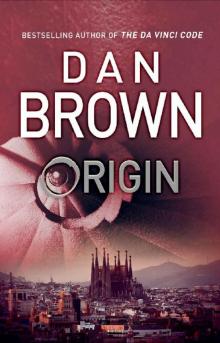 Origin
Origin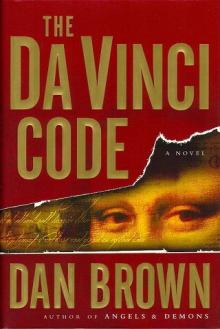 The Da Vinci Code
The Da Vinci Code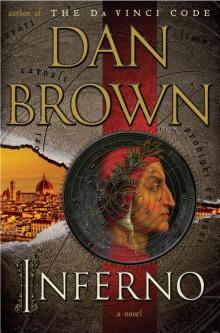 Inferno
Inferno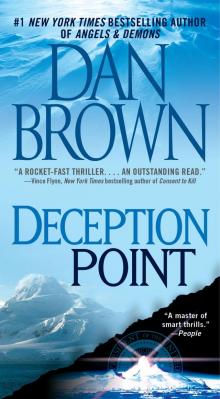 Deception Point
Deception Point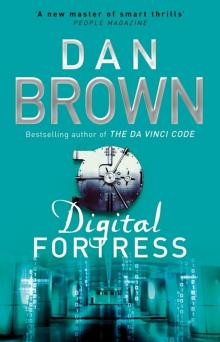 Digital Fortress
Digital Fortress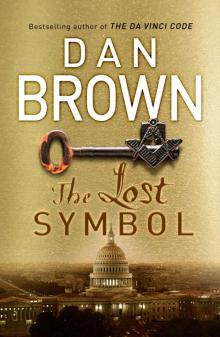 The Lost Symbol
The Lost Symbol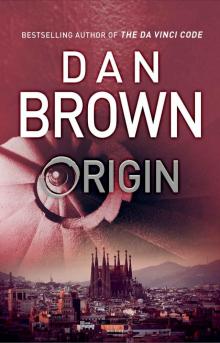 Origin: (Robert Langdon Book 5)
Origin: (Robert Langdon Book 5)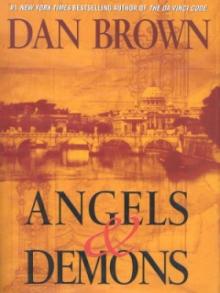 Angles & Demons
Angles & Demons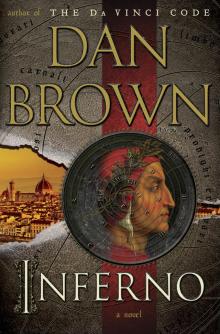 Inferno: A Novel
Inferno: A Novel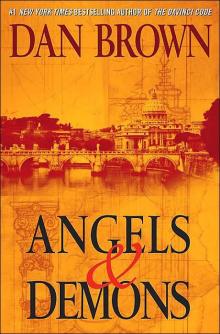 Angels & Demons rl-1
Angels & Demons rl-1 The Great Expectations School
The Great Expectations School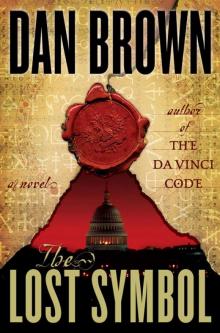 The Lost Symbol rl-3
The Lost Symbol rl-3 Angels and Demons
Angels and Demons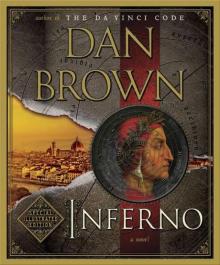 Inferno: Special Illustrated Edition: Featuring Robert Langdon
Inferno: Special Illustrated Edition: Featuring Robert Langdon